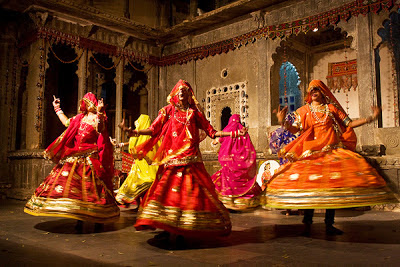Day 3: Mumbai docks/food walk
This morning we met Freni, our driver Proshotam and left for the Sassoon Dock. As it is directly adjacent to a military installation, we were not allowed to take any pictures. The boats had emptied their load of fish, shrimp and eel hours earlier. The buyers haggling over price long gone. When we arrived, we saw scores of women and young girls sitting before huge mounds of shrimp, peeling them quickly enough to get them on ice. As we left, we drove through the military grounds built by the British and still named after British streets and landmarks. Driving to a public fishing beach, we saw families bringing in smaller fish, all by net, and selling them at the roadside.
Just before the public fishing area, we pulled over and went through a little alley. Freni did not at all prepare us for the sight before us. We entered Dhobi Ghat, probably the world’s largest outdoor laundry. There are rows of open-air concrete wash pens, each fitted with a flogging stone. 3/4 of a million pieces come in daily to be washed, dried, starched, pressed and folded. The laundry comes in from all over the city, from households, hotels, schools and hospitals. Using a system of color coding, nothing ever gets lost. It was built in 1890 for the city’s English and Parsi population. Owned by the municipal council, washermen pay rent and maintenance costs for the troughs. Most are migrants from other parts of India. There are hundreds of them who live at the dhobi ghat with their families.
We left there for the Matunga food walk, which included the flower market and a walk through a residential Jain community. The fruit and vegetable displays were perfectly arranged, fresh and beautiful. Freni pointed out the various spices and their uses as well as produce unfamiliar to us. Although Freni and Deepa have everything delivered to their homes, the open market is probably how most people shop. The flower market consisted of rows of tiny 2 story stalls. The merchants display and sell at table height and weave the flowers into garlands and displays in the shade on the ground level. Picture a little cave.
A block away was a Jain center. A few dozen women, all wearing white mouth masks so as not to accidentally ingest and kill a bug, were sitting together, maybe studying with their teacher. They smiled and waved to us, very much like most people we encountered in Mumbai—welcoming, curious and friendly.
After visiting a couple food shops, we ate a light lunch in a local shop—again everything was delicious. After lunch we had to say goodbye to Freni. We were off to the slum tour. Freni was instrumental in training the student guides and knew she was putting us in good hands. I’ll continue tomorrow…

